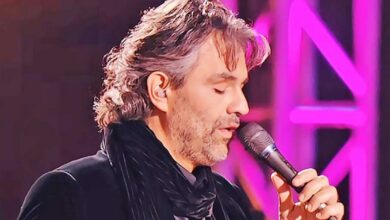Dolly Parton And Vince Gill’s “I Will Always Love You” Duet Had Us Mesmerized And In Awe
Dolly Parton and Vince Gill’s duet of “I Will Always Love You” exemplifies a remarkable artistic partnership that not only showcases their individual talents but also celebrates the timeless nature of the song itself. Originally written and recorded by Parton in 1973, the song’s themes of love, loss, and appreciation resonate universally, making it an enduring classic. Over the decades, the song has been reinterpreted by various artists, but the collaboration between Parton and Gill stands out for its emotional depth and sincerity.
When Dolly Parton first recorded “I Will Always Love You,” it was more than just a song; it was a personal message of gratitude to Porter Wagoner, her mentor, and significant influence during her early career. The poignant lyrics reflect her bittersweet decision to move on, embodying both the pain of parting and the warmth of cherished memories. This raw emotion is palpable in Parton’s original version, which features her unmistakable vocal style that blends powerful belting with tender softness, drawing listeners into her heartfelt narrative.
The duet format of the song takes on a new life with the introduction of Vince Gill’s voice. Gill, recognized for his smooth, graceful vocal style and exceptional guitar prowess, perfectly complements Parton’s iconic sound. Their harmonies are intricate and layered, allowing each artist’s voice to shine while also enhancing the emotional gravity of the lyrics. The interplay of their voices signifies a shared experience of love and loss, resonating with anyone who has ever had to say goodbye to someone meaningful.
As the song opens, Parton’s voice sets a delicate, intimate tone that invites the listener into a moment of reflection. Her phrasing is gentle, allowing each word to linger, which sets the stage for Gill’s entry. When Gill joins in, it creates a beautifully nuanced dialogue between the two singers. His voice brings a richness that blends seamlessly with Parton’s, enriching the overall sound and emphasizing the song’s lyrical themes of nostalgia and affection.
The arrangement of the duet is skillfully crafted, featuring minimalistic instrumentation that highlights the vocal performances. The soft strumming of an acoustic guitar coupled with subtle piano accents creates an ethereal backdrop that emphasizes the heartfelt nature of the song. By keeping the instrumentation understated, the duet allows listeners to focus on the lyrics and the emotional delivery of both artists, amplifying the song’s impact.
Parton’s journey from her humble beginnings in Tennessee to becoming a legendary figure in country music is a testament to her incredible talent and work ethic. Over her decades-long career, she has not only produced countless hits and albums but has also become known for her philanthropy and cultural contributions. Her impact reaches far beyond music as she continues to inspire generations with her storytelling, resilience, and authenticity. Parton’s ability to infuse her songs with deep emotional resonance is a hallmark of her artistry.
Vince Gill’s trajectory in country music intertwines with his remarkable vocal talent and virtuoso guitar skills. Since the 1980s, he has been celebrated for his emotive singing style and powerful songwriting, earning accolades that reflect his contributions to the genre. Throughout his career, Gill has collaborated with various artists, showcasing his versatility and commitment to musical excellence. His participation in the duet with Parton is indicative of his respect for established artists and his dedication to honoring the roots of country music.
The collaboration of Parton and Gill represents a confluence of two unique talents, each with their own distinctive stylistic elements. Their duet reinforces the idea that music can transcend generations, connecting people through shared experiences of love and nostalgia. Their voices intertwine like the threads of a beautifully woven tapestry, creating a rich narrative that speaks to the heart.
As their performance unfolds, it becomes clear that this duet is more than just a musical collaboration; it is a heartfelt tribute to the power of love. The song’s message is timeless, and the way these two legends deliver it ensures that its relevance remains intact for listeners spanning various age groups. Their emotional investment in the performance invites audiences to reflect on their own relationships, making the song deeply personal.
In the broader scope of music, this duet serves as a reminder of the incredible ability songs have to evoke powerful emotions and stir forgotten memories. “I Will Always Love You,” as interpreted by Parton and Gill, stands as a lasting tribute to the beauty of love, the pain of parting, and the enduring connections we hold dear. Their rendition continues to be cherished, highlighting the importance of collaboration in music and the profound impact of shared artistic expression. As they perform together, Parton and Gill craft a touching narrative that resonates long after the final notes fade, ensuring that “I Will Always Love You” will always be remembered as an iconic piece of music history.





